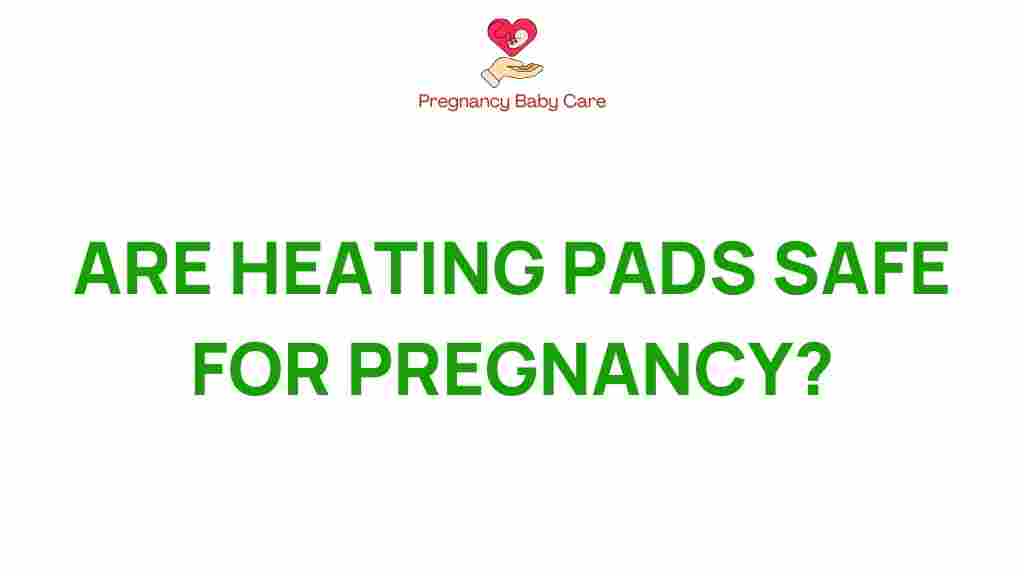The Surprising Truth About Heating Pads and Pregnancy Safety
Pregnancy is a beautiful journey filled with anticipation, joy, and, often, discomfort. As the body goes through significant changes, many expectant mothers seek ways to alleviate the aches and pains that accompany this period. One common solution is the use of heating pads. However, when it comes to pregnancy safety, there are numerous factors to consider. In this article, we will explore the truth about heating pads, their role in pain relief, and essential guidelines to ensure maternal health and comfort.
Understanding Heating Pads
Heating pads are electrical or non-electric devices that provide warmth to specific areas of the body. They are widely used for pain relief, especially for muscle tension, menstrual cramps, and other discomforts. But how do they affect pregnant women?
Pregnancy Safety: The Guidelines
When it comes to using heating pads during pregnancy, following safety guidelines is crucial. Here are some key points to keep in mind:
- Limit Temperature: Keep the heating pad at a low setting to avoid overheating.
- Short Duration: Use the heating pad for short periods, typically no longer than 15-20 minutes at a time.
- Avoid Direct Contact: Place a cloth between your skin and the heating pad to prevent burns.
- Positioning: Avoid placing the heating pad over your abdomen, especially during the first trimester.
- Consult Your Healthcare Provider: Always check with your doctor before using a heating pad for pain relief during pregnancy.
Potential Risks of Heating Pads During Pregnancy
While heating pads can provide comfort, there are certain risks associated with their use during pregnancy:
- Overheating: High temperatures can lead to overheating, which may be harmful to the developing fetus.
- Skin Burns: Pregnant women may have more sensitive skin, increasing the risk of burns.
- Increased Blood Flow: Heat can increase blood circulation, which may not be advisable in certain pregnancy conditions.
- Potential Misuse: Some may use heating pads too frequently or at high temperatures, leading to complications.
Alternative Solutions for Pain Relief
If you are concerned about the risks associated with heating pads, there are alternative solutions for pain relief during pregnancy:
- Cold Packs: For swelling or inflammation, cold packs can be effective.
- Gentle Stretching: Regular stretching can help alleviate muscle tension.
- Massage Therapy: Prenatal massage can provide significant relief and is safe when performed by a trained therapist.
- Yoga and Meditation: These practices promote relaxation and can help manage pain.
- Acupuncture: This traditional method can offer relief for various pregnancy-related aches.
Step-by-Step Process for Safe Heating Pad Use
If you decide to use a heating pad for pain relief during pregnancy, follow these steps to ensure safety:
- Choose the Right Heating Pad: Select a heating pad with adjustable settings and an automatic shut-off feature.
- Prepare the Area: Find a comfortable place to relax, such as a couch or bed.
- Use a Cloth Barrier: Place a thin cloth over the heating pad to prevent direct skin contact.
- Set the Temperature: Begin with the lowest setting and gradually increase if needed.
- Limit Time: Use the heating pad for 15-20 minutes and then take a break.
- Monitor Temperature: Check your skin for any signs of irritation or burns.
- Stay Hydrated: Drink water to help regulate your body temperature.
Troubleshooting Tips
If you experience discomfort or have concerns while using a heating pad during pregnancy, consider the following troubleshooting tips:
- Adjust the Temperature: If the heat feels too intense, lower the setting immediately.
- Change Position: If you feel any discomfort, reposition the heating pad or your body.
- Limit Use: If you feel any adverse effects, stop using the heating pad and consult your healthcare provider.
- Explore Alternatives: If heating pads are uncomfortable, switch to alternative methods for pain relief.
Conclusion: Prioritizing Maternal Health and Comfort
In summary, heating pads can provide effective pain relief during pregnancy, but it is essential to prioritize pregnancy safety by following proper guidelines. Always consult with your healthcare provider before using heating pads or any pain relief methods to ensure they align with your individual health needs.
While heating pads can offer comfort, be aware of the potential risks and consider alternative solutions to manage pain effectively. Remember, your well-being and that of your baby are paramount. For more information on maintaining maternal health during pregnancy, check out this helpful resource.
Ultimately, each pregnancy is unique, and what works for one person may not work for another. Stay informed, listen to your body, and always seek professional advice when needed.
This article is in the category Pregnancy and created by PregnancyBabyCare Team
